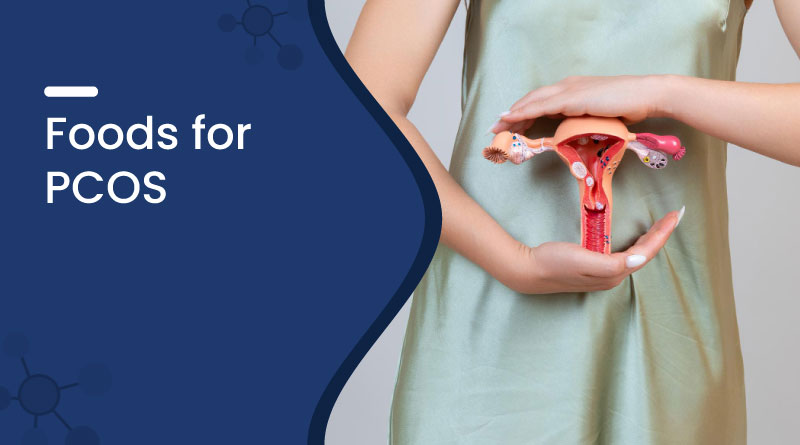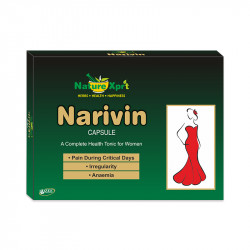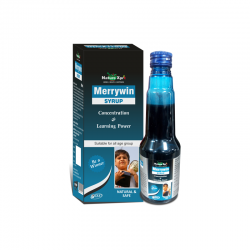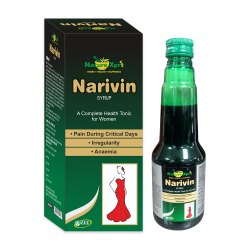Best Foods for PCOS: What to Eat for Hormonal Balance


PCOS, short for Polycystic Ovary Syndrome, is a hormonal condition that affects the functioning of the ovaries. It is a common problem faced by females of reproductive age. If you are suffering from PCOS and facing symptoms like irregular periods, acne, weight gain, or fertility issues, making the right food choices can play an important role in its management naturally. In this blog, we’ll explore the best foods to support hormone balance, reduce symptoms, and improve overall well-being.
What Is PCOS?
PCOS is a very common problem that is caused by the imbalance of hormones, especially the increased levels of male hormones, androgens, and insulin resistance. It may lead to the formation of tiny cysts in the ovaries and disturb normal ovulation. The most common symptoms of PCOS are:
- Irregular periods: Missed, infrequent, or prolonged menstrual cycles.
- Excess hair growth: Often on the face, chest, or back due to hormonal imbalance.
- Acne or oily skin: Caused by elevated androgen (male hormone) levels.
- Weight gain: Especially around the abdomen.
- Mood changes: Anxiety, depression, or mood swings are common.
- Sleep problems: Some may face sleep disorders, including insomnia or sleep apnea.
Best Nutrients and Foods for PCOS
Even though there is no permanent curative method for this condition, adopting a balanced diet full of essential nutrients can remarkably help in easing the symptoms. Adding the right type of foods to your diet can regulate insulin levels, keep the hormones in balance, and also support weight management.
Complex Carbohydrates
Instead of refined carbs, opt for complex carbs that are rich in fiber and have a low glycemic index. They prevent sudden spikes in blood sugar levels, helping with insulin resistance. It includes:
- Quinoa
- Brown rice
- Oats
- Sweet potatoes
- Whole wheat
Lean Proteins
Protein helps maintain satiety and supports muscle health. It also helps stabilize blood sugar levels. Top sources are:
- Eggs
- Chicken breast
- Lentils
- Tofu
- Fish like salmon (also rich in omega-3s)
Healthy Fats
Healthy fats reduce inflammation and support hormone production. Top sources:
- Avocados
- Olive oil
- Nuts (walnuts, almonds)
- Chia seeds and flaxseeds
Fiber-Rich Foods
Fiber supports the removal of excess hormones and supports digestive health. Foods that are high in fiber:
- Leafy greens (spinach, kale)
- Broccoli and cauliflower
- Berries
- Apples and pears (with skin)
Omega-3 Fatty Acids
Omega-3s have anti-inflammatory properties and may help reduce testosterone levels.
- Fatty fish (mackerel, sardines)
- Flaxseeds
- Walnuts
- Fish oil (if recommended by a doctor)
Antioxidant-Rich Foods
Antioxidants fight oxidative stress, which is higher in women with PCOS. These include:
- Blueberries
- Pomegranate
- Turmeric
- Green tea
What To Avoid in PCOS?
When managing PCOS, it’s just as important to know what to avoid as it is to know what to include. Certain foods can spike blood sugar levels, trigger inflammation, or worsen hormonal imbalances that make PCOS symptoms harder to control. While cravings can be tough to resist, staying mindful of your choices can go a long way in improving your health and energy levels.
- Sugary foods and drinks (Candies, sodas, pastries, energy drinks)
- Refined carbohydrates (White bread, white rice, pasta, crackers)
- Processed and fast foods (Chips, instant noodles, frozen meals)
- Dairy (in some cases) (Full-fat milk, cheese, cream)
- Artificial sweeteners (Diet sodas, sugar-free desserts)
- Caffeinated drinks and alcohol (Coffee, energy drinks, alcohol)
Lifestyle Tips Along with Diet
- Stay physically active: Regular exercise improves insulin sensitivity.
- Track your cycle: Helps monitor symptoms and detect irregularities early.
- Sleep well: Poor sleep can impact hormone regulation.
- Control stress: Engage in calming activities like yoga, breathing exercises, or meditation to help reduce cortisol levels.
- Achieve a healthy weight: Modest weight reduction can significantly lessen PCOS symptoms.
Also read - Best supplements for PCOS weight loss
Conclusion
Managing PCOS begins with making thoughtful lifestyle and dietary choices. By including fiber-rich, anti-inflammatory, and hormone-supportive foods in your meals, you can naturally ease many PCOS symptoms. Remember, every individual’s experience with PCOS is different, so it’s important to find what works best for your body. A registered dietitian or healthcare provider can offer personalized guidance for your needs.
Frequently Asked Questions (FAQs)
Q. Can diet alone treat PCOS?
A. No, but a healthy diet can significantly reduce symptoms and support hormone balance.
Q. Should I avoid carbs with PCOS?
A. Instead of completely avoiding carbs, choose complex carbs like oats and quinoa as they are rich in fiber.
Q. Can weight loss help in reducing PCOS symptoms?
A. Yes, even a 5–10% weight loss can improve hormonal balance and ovulation.
Q. Does eating sweet items increase the symptoms of PCOS?
A. Foods that contain sugar can raise insulin and lead to weight gain. Instead, going for dark chocolate in moderation is fine due to its antioxidant content.
Tagar (50 mg) + Jatamansi (60 mg) + Triphala (70 mg) + Punarnava (80 mg) + Arjun (45 mg) + Bhangra (50 mg) + Shuddha Guggul (45 mg) + Kasis Bhasma (30 mg) + Mandoor Bhasma (30 mg) + Mukta Sukti Bhasma (40 mg)
10 Capsules in 1 strip
Shankhpushpi + Brahmi + Mandook Parni + Amlaki + Pathya + Jatamansi + Jyotishmati + Yastimadu + Aswagandha + Vidang + Tagar + Vacha
225ml Syrup in 1 bottle
Ashok (75 mg) + Lodhra (35 mg) + Patranga (30 mg) + Sariva (35 mg) + Kumari (65 mg) + Shatavari (30 mg) + Bala (60 mg) + Punarnava (45 mg) + Ashwagandha (40 mg) + Daru Haldi (35 mg) + Ulatkambal (65 mg) + Dashmool (40 mg) + Mochras (30 mg) + Chandrasur (60 mg) + Bol (30 mg)
225ml in 1 bottle
Recent Blogs
Disclaimer : Zeelab Pharmacy provides health information for knowledge only. Do not self-medicate. Always consult a qualified doctor before starting, stopping, or changing any medicine or treatment.



















 Added!
Added!